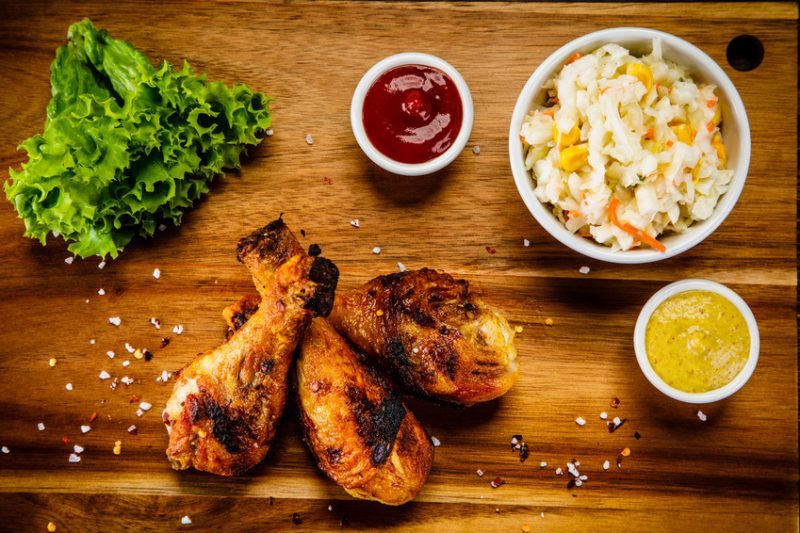It takes more than just your taste buds to experience flavor while eating and drinking. Mass. Eye and Ear sinus surgeon Eric Holbrook, M.D., explains how your sense of smell plays a role in what you taste.
Think about the last time you had a cold. Was your sense of taste dulled – or even lost entirely?
You might think that your taste buds were impacted by that cold, but it is actually your congested nose that made your tea and homemade soup taste so bland.
It all comes down to this little known fact: in order to taste properly, you must be able to smell.
“When it comes to tasting your food, it’s a combination of taste and smell that gives you what we know as flavor,” said Dr. Eric Holbrook, a sinus surgeon at Mass. Eye and Ear specializing in smell and taste loss. “In fact, flavor is mostly related to smell. This is why, when someone has nasal obstruction from the common cold, they often experience a dramatically altered sense of flavor.”
Smell and Taste – How It All Works
Our sense of smell kicks in when the body picks up chemicals in the air that excite the nerves of the nose, or the olfactory sensory neurons. These neurons have odor receptors that, once triggered, send signals to the brain to give you the perception of a particular smell.
Likewise, taste occurs when the tongue samples something in the mouth that activates the taste buds. The taste buds then send messages to the brain to give you information about what you are consuming.
With taste, however, your tongue can only identify salty, sweet, sour, bitter and umami (savory) tastes.
It’s your sense of smell that accompanies these tastes and provides you with the food’s intended flavor. Without smell, you are left to rely on those five tastes, which can be bland or unpleasant on their own.
“Taste and smell together – in addition to color, texture and temperature – is what gives you a sense of what you’re eating,” said Dr. Holbrook. “Flavor is what you experience when all of these senses are activated at the same time.”
Losing Your Senses of Smell and Taste
Anything that can give you nasal obstruction, including the common cold as well as bad allergies, can result in short periods of inability to smell (and, by extension, to taste).
When this happens, smell and taste loss are very common as your body reacts to the swelling of the nose. Other, less common culprits of smell and taste loss can include head injuries, acute and chronic sinusitis, nasal polyps and nasal tumors.
In most cases, these sensory losses are only temporary. Once the nasal cavity swelling subsides, your ability to smell and taste should return to normal.
However, in some cases after a cold, smell and taste might not return so quickly. According to Dr. Holbrook, this is thought to be caused by a viral infection that harms the olfactory neurons and diminishes your sense of smell and taste for longer periods of time. If this occurs, it is important to speak to your doctor and be evaluated by an ear, nose, and throat (ENT) specialist to determine the possible cause.
There are not many treatment options for these patients. But, fortunately, the nerves of your nose are able to regenerate. Many patients do recover, although it could take several months to years.
There is also a newer treatment for smell loss known as odorant training that has seen encouraging results. It calls for patients to smell four odors – rose, eucalyptus, lemon and clove – twice each day.
Taste Loss Without Smell Loss
Sometimes, patients believe that they have taste loss, when it is actually a loss of smell. “Difficulty tasting food is often what makes people notice their loss of smell,” Dr. Holbrook noted.
But there are some patients who have true taste loss.
It is difficult to have a complete taste loss, so most of these patients notice a decreased or altered sense of taste. Many describe a metallic taste in their mouths when eating or drinking. This can be a result of many causes, including infection, central brain disorders, nutritional deficits or complications in surgery of the mouth or ear. When there is a loss of taste, it should also be evaluated by an ENT specialist.
When To Call The Doctor
If you or a loved one experience persistent loss of smell or taste, Dr. Holbrook recommends seeing a doctor. There could be an underlying cause to be addressed, or – worse – there are dangerous hazards that can accompany these losses, especially for those with a loss of smell (i.e. inability to detect smoke or gas).
“We rely on our senses in our everyday lives. So, when one is impacted, it isn’t something that should be ignored,” Dr. Holbrook said.
About Our Expert
 Eric Holbrook, M.D., is Director of Rhinology at Mass. Eye and Ear.
Eric Holbrook, M.D., is Director of Rhinology at Mass. Eye and Ear.


Good article. Intersting to me as i have congenital anosmia therefore have never smelled. I often wonder how my food would taste if i could smell. sometimes when my trigimal nerve picks up mint i think for a moment i am smelling though i know im not. probably why i like anything mint.
I’m 15, and my mom talked to a doctor over the phone about 2 weeks ago and they told her she had covid based off the symptoms she gave them, 1 week later I lost my smell then 2 days later I loss my sense of taste too, I gained both of them back about 4 days ago fully , but when I was smoking ( yes ik smoking 🤦🏽♀️) The smoke started to smell very odd like burnt peanut butter or sum so I quit smoking fully I haven’t smoked in about 3 days now and I’m not planning on smoking no more , but smoking is not the only thing that smells like burnt peanut butter it’s also hot foods like I was cooking bout 3 days ago and the grease I was heating up almost made me vomit the smell was so strong I still tried to eat the chicken I was making but it was horrible asf. Then 20mins ago I tried to heat up an hot dog and tasted it and I couldn’t eat it, 🤷🏽♀️ It smelled normal a lil bit this time but it tasted like burnt peanuts mixed with some type of laundry detergent so I spit it out and threw it away but apple juice, oranges and others still taste the same idk what’s going on i know it’s something called parosmia but I’m scared and I cried all yesterday wondering if it’s permanent , I been trying to do things I looked up such as the salt Water solution (rising your nose out with it ) and smelling strong scents like cologne ,bleach , and fabulaso. Idk if it made it better or what but I’m praying that all this end soon for everybody going thru it , do not take this for granted I never thought Ill get covid or be going thru something like this , this can pop up in your life any second ,wear an mask everywhere and stay clean , please pray for me